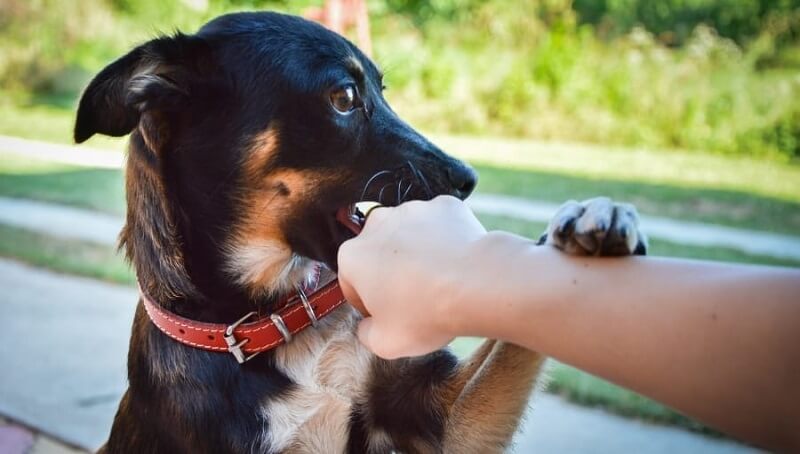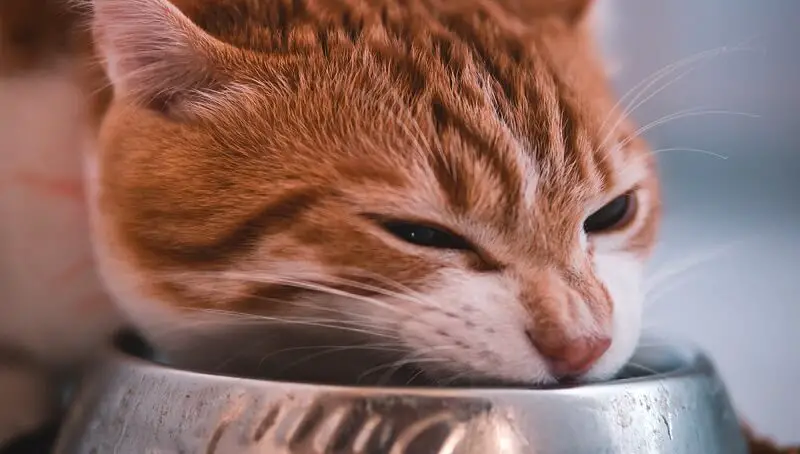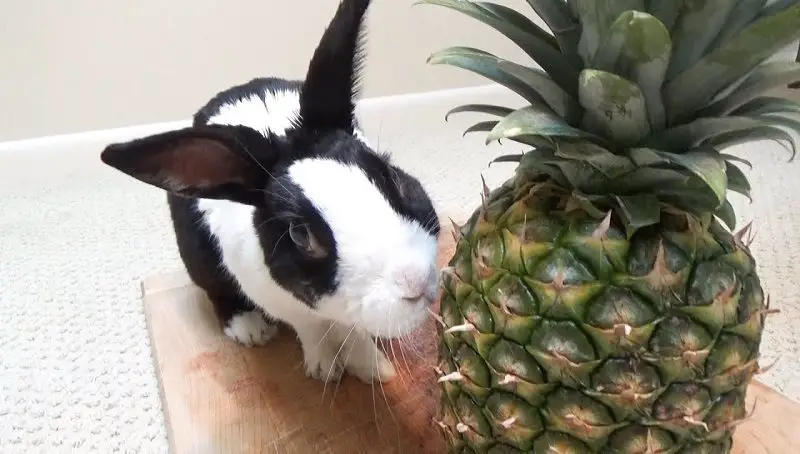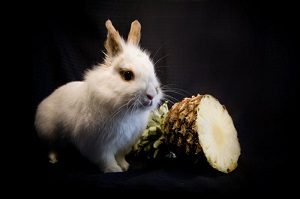
Why Does My Dog Nibble with Front Teeth? – The Cobbing Behavior
August 30, 2022
Foods You Should Never Feed Your Cat
August 30, 2022
Did you know that all domestic rabbits come from a European wild ancestor? Yes, the rabbits we know and love today originally came from an area now controlled by Spain and Portugal. This European growth is largely responsible for how rabbits’ diets developed: rich in herbs, with occasional vegetables.
With tropical fruits available at your local grocery store, you might wonder if your rabbit can eat some of your favorite naturally sweet foods.
That’s why in today’s article, I’ll cover everything you need to know on whether your rabbit can eat pineapple. Read on to learn more about how your pet’s digestion will interact with one of the most popular tropical fruit.
Rabbits can eat pineapple. Your rabbit certainly can eat pineapple and will probably try to steal it from your plate if they are given the opportunity! In case you didn’t know, most rabbits have a real sweet tooth – and they will gladly try to steal fresh fruit right from under your nose.
Health benefits of pineapple in rabbits
Pineapple is rich in one essential nutrient for your rabbit’s health: Manganese. It is also incredibly high in sugar, with almost 10 grams of sugar per 100 grams of fruit.
Introduced to Europe in the 17th century, pineapple quickly became a symbol of luxury and decadence. It has been cultivated in greenhouses and tropical plantations since the 1960s and is the 3rd most popular tropical fruit in world production.
The manganese found in pineapple helps the rabbit’s body produce energy and protect against cell damage. It is also essential for their bone, reproductive and immune systems.
While the high sugar content of pineapple makes it less than ideal for daily consumption, its health benefits make it a better choice as a treat than many other fruits.
Can pineapple be bad for rabbits?
Any food that has a high sugar content can cause problems in a rabbit, and this includes pineapple. Your rabbit’s digestion is based on a complex environment of intestinal bacteria, and this balance can be adversely affected by sugar. In large quantities, pineapple can cause bloating, diarrhea, and general gastrointestinal distress for the rabbit.
How to give pineapple to your rabbits
While the sweet fruit’s core is perfectly safe for your rabbit’s body, the spiky skin and leaves are not. With any pineapple that you want to give to the rabbit, you will need to shave the hard outer layers and feed them only the soft inner fruit.
You might also like my articles on whether rabbits can eat raspberries, cabbage, or cucumber.
It is recommended to offer pineapple to rabbits as a rare treat, rather than a dietary basis. Feeding the rabbit any foods high in calories and sugar can easily lead to obesity. Most experts agree that this drastically reduces the life span of a rabbit.
When giving pineapple to a rabbit for the first time, you should remember that some animals may be allergic or may react poorly to its consumption. The safest way to introduce it is to start with a very small amount. A little pecking, at first!
Rabbits are known for eating anything sweet. They are not always able to control themselves, so they will continue to eat as long as the food is in front of them.
Offering your rabbit some pineapple, little by little, is the best way to introduce it into their diet.
How much pineapple should you offer your rabbit?
Pineapple should be reserved as an occasional treat or snack for your rabbit. Feed them no more than once a week and in portions no larger than the rabbit’s head. That is, more for larger rabbits and significantly less for small rabbits.
 Most animal nutrition experts recommend that the administration of any fruit to a rabbit be done in relatively small amounts. Ordinary pet rabbits only need about 2 grams of sugar in their diet per day.
Most animal nutrition experts recommend that the administration of any fruit to a rabbit be done in relatively small amounts. Ordinary pet rabbits only need about 2 grams of sugar in their diet per day.
Since there are about 10 grams of sugar in every 100 grams of pineapple, your rabbit should only have about 20 grams of pineapple, maximum, in a day.
Dried pineapple has fewer calories than fresh pineapple. However, it has about the same sugar density as fresh pineapple, the main difference being the lack of juice content.
Some rabbit owners have wondered about offering pineapple juice to rabbits. Pineapple juice has been known to clean the intestines of the fur balls that can get stuck in, as the acidity can break down hair fibers.
Most of the time, however, giving pineapple juice to rabbits is a bad idea. Pineapple juice can have considerably fewer fibers, vitamins, and minerals when compared to pineapple fresh fruits.
How to feed rabbits correctly: Allowed food
Hay! The basic diet of rabbits is hay, also called ‘rabbit bread’. They must always have it at their disposal and in sufficient quantities. Hay is essential for a healthy diet, being a source of protein and fiber, which helps keep their teeth healthy and ensures proper digestion. The hay crunching keeps them from boredom and any behavioral problems that can degenerate from here. Rabbits have a rather complicated digestive system and hay must be of very good quality. It must have a green color, to be very dry and with a fresh smell.
Fruits and vegetables! Daily, a bowl of fresh fruits and vegetables provides rabbits with a healthy diet. At first, rabbits should be fed small amounts of fruits and vegetables, and gradually it is advisable to accustom them to various increasing amounts. You can offer them: apples, carrots, parsley roots and leaves, radishes, broccoli, cucumber, fennel, parsnips, and celery.
Fresh twigs! In order to diversify its diet and help to soften its teeth, it is recommended to introduce twigs and leaves into the rabbit’s diet. They must necessarily be washed beforehand. Drinking water must be available at all times in sufficient quantities and must always be clean and fresh.
Forbidden foods
Bread and biscuits! Do not feed your rabbits with bread or biscuits, as they contain grains that damage digestion.
Dry food! Rabbits don’t need dry food! It’s a secret that’s good to keep in mind if you want to learn how to feed rabbits properly. In most cases, it is made up of grain residues, which in pressed form contain dyes. Rabbits don’t need cereal. In the worst case, they stick to their intestinal tract, which leads to serious health problems.
Final thoughts
These sweet tropical fruits are an excellent occasional treatment for your rabbit and can be safely fed in small amounts. Always watch for any signs of indigestion that would indicate that you feed your rabbit too much pineapple. Feeding it once a week is a good starting point.
